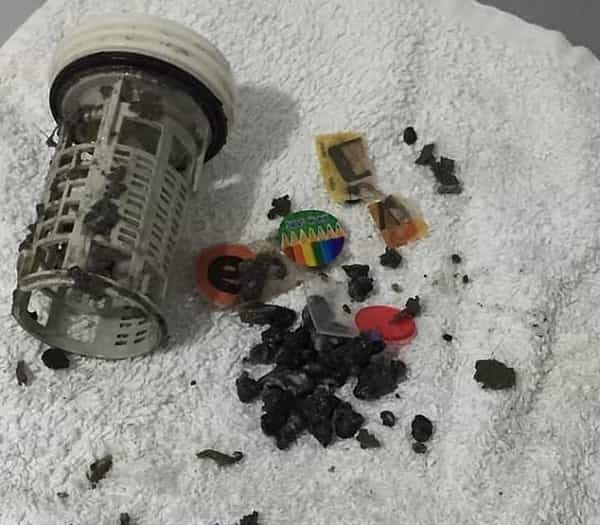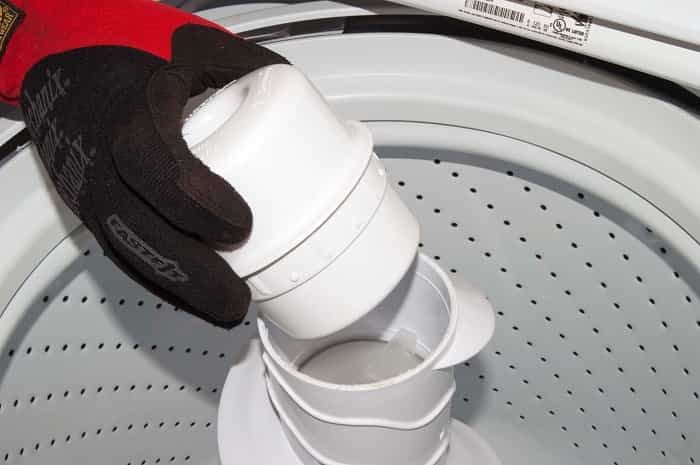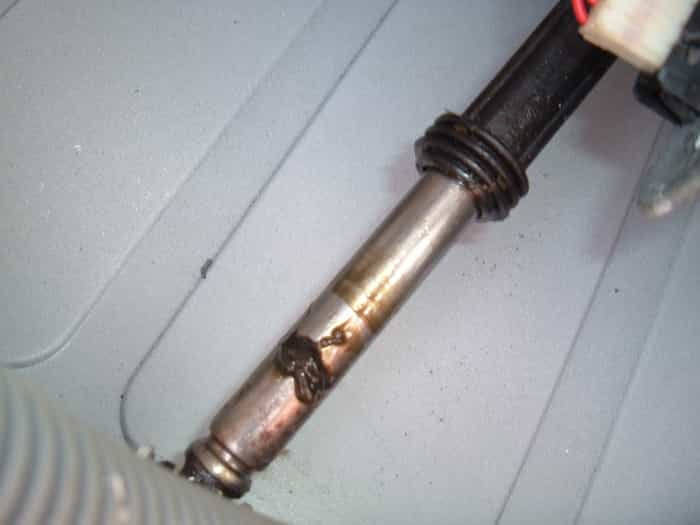Homeowners everywhere have come to expect a certain level of functionality and effectiveness from their many different appliances, and rightly so, as the purchase, these days of any worthwhile appliance is a bit of an investment.
One of the most frequently used household appliances is (and has always been,) the washing machine making noise that is responsible for washing all the family’s articles of clothing–at least all the clothing that is not sent out to be commercially cleaned or dry cleaned.

With busy work schedules and the fairly constant stream of a myriad of other pressing responsibilities, it’s a great comfort to be able to come home, eat and relax while at the same time, entrusting your washing machine making noise to perform its magic in restoring a load or two of laundry to its clean status–without interfering with your ability to relax during the entire cycle.
In fact, more than a few homeowners express getting a certain sense of satisfaction and accomplishment from listening to a soft, gentle hum of their hard at work washing machine, as it removes dirt, grime, and stains from all of the family’s various articles of clothing.
When the Sound Changes or Increases
While it is of great comfort to know that the washing machine is running, partly by knowing that you recently started a load, and partly because of a soft working hum in the distance of the washing room, now all washing machine sounds are good.
For the most part, anyone who has done more than a load or two on any given washing machine will become somewhat familiarized with the distinctive sound of the particular machine as it is running.
It’s kind of an “all is well” sound that is eventually followed by a dead silence, signaling the one doing the washing to either hang or load up the dryer with the clothing contained in the washing machine making noise.
So, after becoming familiar with the sound of your working washing machine, there may, at one time or another, proceed with a different sound or a louder noise than anything you have come to expect.
Before you rush to engage the services of a slow, but by the hour repair technician, a little bit of knowledge can wind up saving you money, if nothing more than your not having to pay for diagnostic time.
Sounds Help Diagnose the Type of Problem
The washing machine making noise is a pretty straightforward and simple machine, comprised all of only a few parts that are designed to move–which would be the only way that any type of sound would be produced.
Actually, if you are able to hear your washer making a sound, be thankful, as the type of sound it is making will more than likely help direct you to the exact problem with your machine.
Many of the typical causes that produce washing machine making noise, if attended to as soon as they are detected, can be occurring from problems that, if fixed right away, are quite easy and inexpensive to remedy.
Maybe your washing machine sounds are coming from one of the following typical issues.
Broken Motor Coupling:

A loud, buzzing sound (like something is trying to engage, but just won’t,) is most likely an indicator of the machine’s motor coupling being broken.
Jammed Pump:

A solid, unbroken humming sound can often be due to an article of clothing becoming stuck, and thereby jamming the pump.
This would render the washer motor as being unable to rotate, and if left unattended, will result in burning out the motor completely.
Foreign Object Lodged in the Pump:

A higher-pitched type of whirring hum or sound can often indicate that something small has become lodged in the pump, sometime during the wash cycle. Empty the machine and inspect with a flashlight for even something quite small.
Worn Out or Just Loose Washer Drive Block:

If you happen to hear a rapidly knocking washing machine making noise coming from your washing machine as its brake is attempting to engage to end any spin cycle, check out the washer drive block.
Hopefully, it is only a loosening that you are experiencing, which can be easily tightened back down. Certainly, if you allow such a sound to continue, it will most definitely result in a far worse problem.
Worn Out Agitator Clutch Dogs:

A rather prominent crunching type of noise that manifests from the washing machine making noise when it is full of water, a worn-out agitator clutch dog will sound out when the machine is attempting to agitate. Another source of substantial drain on the motor of the unit.
Locked up Water Valve:

When a washing machine’s water valve becomes locked up, you will hear a fairly faint, low buzzing sound underlying the normal operational hum of the machine. Hearing this noise often requires a bit of dedicated attention, as it’s not always that audible from a distance.
What this can indicate could be a problem with any type of electrical part, however, it’s sometimes the manifestation of a water valve that is getting power but is either failing to open or is getting now water, which it needs to operate.
Drain Pump Fail:

Sometimes noises that occur during or just after the spin cycle portion of the wash or rinse can indicate that the drain pump is either being restricted in some way or may have simply failed to operate.
The drain pump is what the washing machine relies upon to pump out the water from the washtub. It can be belt-driven, motor-driven, or even have its own electric motor.
Drive Belt:

The washing machine’s drive belt is used to decrease the amount of friction that is created when the motor starts up. It connects the drive motor to the transmission in some top-loading washing machines, and in most front load washers, it connects the drive motor to the wash basket.
When it becomes loose or worn out you will hear a whirring sound of the belt slipping.
Shock Absorbers:

Only found on front loading washing machines, shock absorbers are designed to dampen tub movement in the spin cycle.
They are attached to the base frame and the outer tub. When they weaken or are damaged, you will often hear a loud banging sound during the operation of the spin cycle.
If you do not take action to repair this, other washing machine making noise components will likely become damaged. If you attempt to fix this yourself, always unplug the machine from its power source before doing so.











